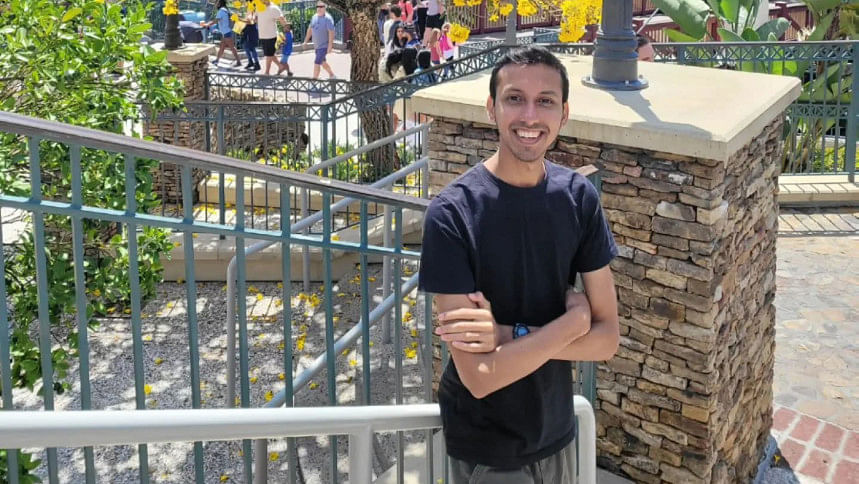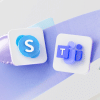Where ambition meets opportunity: Asifuzzaman’s path from BUP to Microsoft

Mohammad Asifuzzaman, an alumnus of Bangladesh University of Professionals (BUP), pursued his undergraduate studies in Information and Communication Engineering. He is currently serving as an operations lead at Microsoft for the Microsoft 365 division.
Raised in Mirpur, Dhaka, Asifuzzaman's childhood was filled with dreams of becoming a pilot, an army officer, and even a scientist — dreams fueled by a curiosity for technology sparked from reading tech magazines at a young age. He began his educational journey at BCIC School in Mirpur, earning a scholarship in the eighth grade and securing GPA-5 in his SSC exams. Later, Asifuzzaman completed his HSC from Birshreshtha Munshi Abdur Rouf Public College. His academic excellence continued at BUP, where he graduated with a CGPA of 3.57. His global outlook was shaped further through a stint at Valencia College, USA, where he earned a perfect CGPA of 4.00 along with the President's Honor.
Campus sat down with Asifuzzaman for an interview where he walked us through the milestones and moments that shaped his path to Microsoft.
Campus (C): Can you share a bit about your journey from BUP to becoming an operations lead at Microsoft?
Asifuzzaman (A): I will take you back to 2014 when I attended a one-day app development workshop at Microsoft Bangladesh. It was conducted by Microsoft Student Partners, where all the participants were undergraduate students from IT, CSE, and EEE backgrounds. I was only in class seven, but that day sparked a dream: to become a student partner when I reached university. I fulfilled that dream in 2020 during my second year at BUP by becoming a Microsoft Learn Student Ambassador (MLSA). That platform gave me a bridge to global tech developments. Even in 2020, I was exploring cloud infrastructure and security while they were still emerging in Bangladesh.
I founded the MLSA Chapter at BUP, and this foundation enabled me to compete globally, eventually leading me to the United States. There, I networked with tech leaders in Florida, Atlanta, and Washington. I gained hands-on experience through internships and projects that made me industry-ready.
By the final semester of university, I was actively interviewing with companies including Microsoft, Kyndryl, OVHcloud, Cisco, Emirates Telecom, and Deloitte. By August 2023, I cleared the rounds for a Technical Support Engineer role at Microsoft in the Small and Medium Business (SMB) segment. Within two months, I was promoted to Technical Lead, especially for my expertise in Microsoft 365.
Soon after, a restructuring at the company created an opening for an operations lead position, and with my technical expertise, business acumen, and cross-cultural leadership experience, I transitioned into that role. I scaled our advisory operations from the US to across the world within three months. Everything I learned, starting from my university days, contributed to getting me where I am today.
C: You've recently worked on Microsoft Copilot. What was your role in that project, and how did it contribute to the overall success of the initiative?
A: My involvement with Copilot started in early 2024. Back then, I was leading the Microsoft 365 segment, and Copilot was still being explored. We received a critical directive: ensure every Microsoft 365 customer understands Copilot and its potential.
We adopted a product-led growth strategy by leveraging machine learning to extract business and technical goals from customer interactions in real time and recommend relevant use cases. Though not a sales campaign, it surpassed traditional strategies in North America and is now being scaled globally.
My role here was pivotal. I provided technical cues to developers to fine-tune the models and trained our customer-facing engineers to adopt a "trusted advisor" mindset. We gathered extensive customer feedback, which is actively informing improvements made by the Microsoft AI team.
C: What experiences at Microsoft Learn Student Ambassadors or ECAs helped you prepare for your current role?
A: My current role demands a blend of process management, critical thinking, and multi-layered leadership. One key ECA was my work with the NGO Community Development for Peace, where I collaborated with the Dhaka Metropolitan Police and Special Branch. That taught me to endure high-pressure situations and multitask with patience.
My involvement with MLSA enabled me to work with cutting-edge technologies, like cloud and virtualisation, swiftly and then communicate them to large audiences. That experience mirrors my current role – mobilising teams, aligning them with goals, and driving rapid deployments.
C: In your experience, does CGPA act as a barrier when applying to top tech companies like Microsoft, especially for fresh graduates?
A: By the time you're applying to top tech firms, your focus should be on what you've built – projects, hackathons, and experiments that reflect your passion and capability. CGPA may be a factor for roles tied to academia, such as research. For example, engineering roles at Microsoft prioritise your adaptability, scalability mindset, and sustainable coding practices. However, if you're pursuing research-focused positions, then academic records carry more weight.
That said, CGPA can be a barrier in specific regions or roles, like military tech roles where CGPA requirements are strict. My advice is to maintain decent grades early on so you can shift focus to hands-on skills in later semesters without compromising your overall academic record.
C: Many students only aim for software engineering roles, but your journey as an operations lead shows there are diverse paths in tech. Could you share guidance for students interested in roles beyond software development?
A: It's true that most students follow the software engineering track because it's a proven career path. But as you explore, you'll discover your strengths and preferences.
Take Microsoft 365, for instance. It involves software engineers, product managers, data analysts, support strategists, and more.
My advice here is to be good with technology and quick to learn. Know whether you prefer behind-the-scenes work, customer interactions, or strategic planning. Self-awareness will shape your career path and, eventually, help you reach a strategic position where you become indispensable in your track.
C: What advice would you give students or young professionals interested in working in operations or tech leadership roles?
A: I would say spend quality time understanding the technologies you want to work with. It's a rapidly evolving field, so understanding architectures and principles is essential.
On the leadership front, begin the moment you commit to mastering your domain. Get involved in programmes like Microsoft Learn Student Ambassadors or GitHub Campus Experts. But remember, execution is key.
Practice leadership through clubs and community roles. As for operations, it's highly organisational. While certifications or an MBA might help, the true asset is your ability to lead large-scale initiatives, manage budgets, and coordinate complex collaborations.
In tech, operations and leadership must be rooted in solid technical understanding. Don't skip that; it's what separates a good leader from a great one.
Raiyan Bin Sarwar is a Campus Ambassador for The Daily Star from Bangladesh University of Professionals (BUP).

 For all latest news, follow The Daily Star's Google News channel.
For all latest news, follow The Daily Star's Google News channel. 








Comments